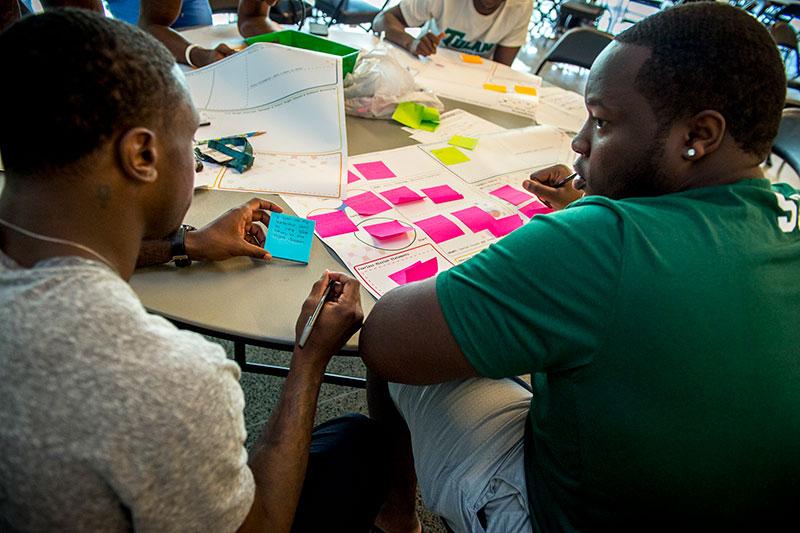Tulane offers free material for teaching students about social impact careers
The Phyllis M. Taylor Center for Social Innovation and Design Thinking at Tulane University has developed an online library with materials such as instructor guides, videos, worksheets and other resources to assist educators in helping university students develop careers that address social or environmental issues.
“Complex social and environmental challenges require a diverse and eclectic work force who can tackle those challenges from all angles,” said Julia Lang, who as assistant director of career education at the Taylor Center oversees the initiative.
Lang says the statistics indicate that today’s student is likely to change jobs 12 times in their lives, so preparing for one position or career track is also no longer relevant. The course uses the tools of design thinking to help students consider how they can identify and test ideas to plan for a career that is meaningful and makes the world a better place, while teaching students a process that can be used again and again to navigate transitions in life.
“I think TYL does an amazing job of helping a student to be able to envision and explore multiple life paths” said Lezlie Griffin, assistant dean for Career Development Initiatives, at Tulane School of Law who participated in the TYL instructor training in summer 2018. “This is something that I just don't think a lot of students put a lot of thought into. Going through this class really expands your thinking in this area, and not only do you envision the paths, but you believe that they can be a reality for you”
The library is based on a two-credit course at Tulane called Taylor Your Life, which has grown from a five-week workshop to 24 annual sections of a two-credit class.
Design Thinking has been used to redesign products, experiences and services, from an MRI machine for children to contraception campaigns in Zambia to home meal delivery for senior citizens.
The method uses observation, questions assumptions, reframes problems and develops real-world prototypes to test ideas. Applying it to career education, it helps students explore what matters to them, how they can make connections in their field, and how they can build small prototypes.
“Quitting your job to join an international NGO is reckless when you haven’t explored or ‘prototyped’ what that life is actually like and if that lifestyle would work for you,” Lang said.
A core part of Design Thinking are mental reframing exercises, with powerful tools to help students reshuffle what they think about the working world. This process provides a stepping stone for students to test the waters of the real world through the web of relationships and organizations that are tackling the major challenges in the country and world.
“It completely reframed my view of my future” one student reflected after taking the course. “Instead of blindly moving through college and going through the motions, I now know the steps I can take to end up in a career that I enjoy. Because of this class I have a more concrete idea of what I want to do in my future, both professionally and personally.”
The library’s material is licensed under a Non-Commercial Creative Commons license, granting anyone access to share, copy, adapt and redistribute the material, so long as credit is given and the material is used for non-commercial purposes.
More information about the course, including assessment reports from both students and staff participants is available on the TYL website.

